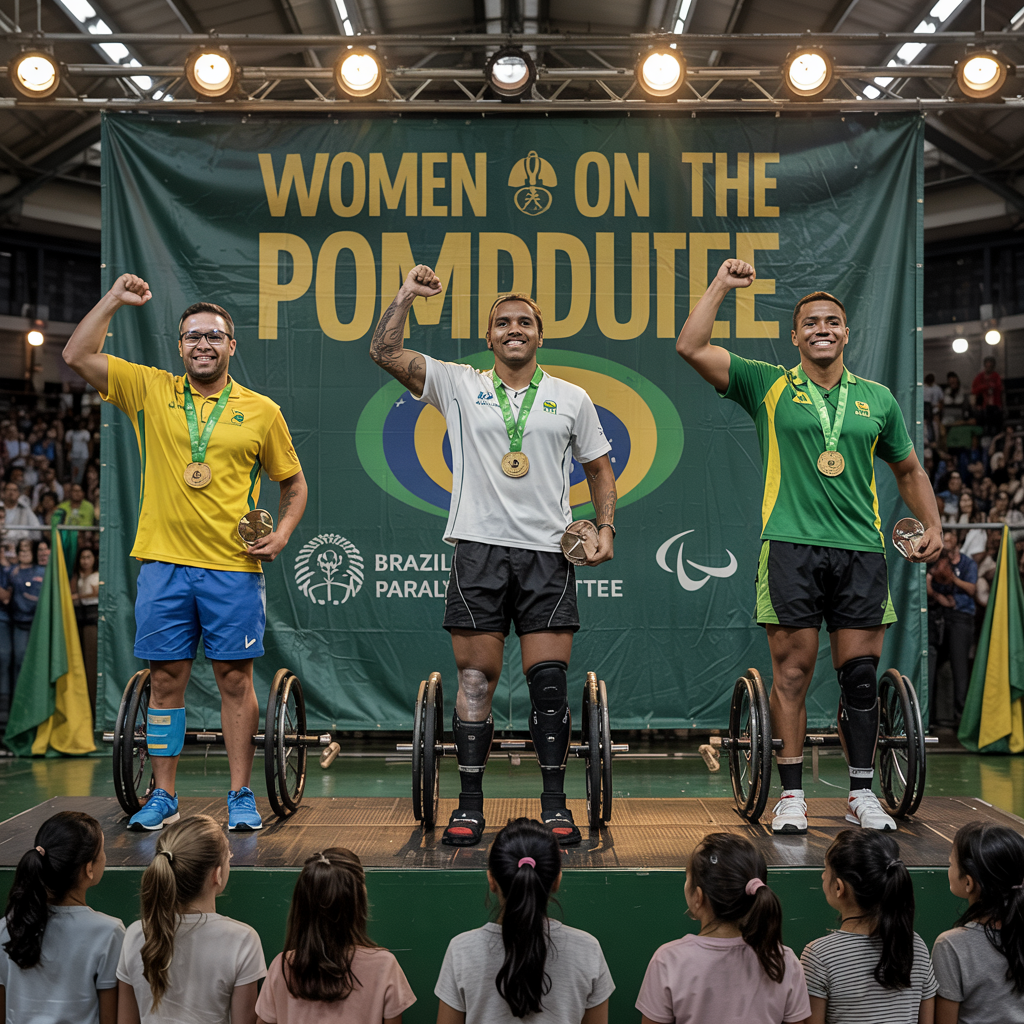In celebration of International Women’s Day, the Brazilian Paralympic Committee (CPB) has released a powerful new documentary titled “Women on the Podium”, featuring the lives and training routines of three of Brazil’s top female Paralympic athletes: Tuany Barbosa, Mariana D’Andrea, and Sophia Kelmer.
The film, which debuted on CPB’s digital platforms and public TV networks, offers an intimate look at the challenges, triumphs, and daily battles faced by these elite athletes — both in competition and in life.
More Than Just Medals
“Women on the Podium” is not simply a celebration of sporting excellence. It’s a social commentary on inclusion, resilience, and gender equity in the world of Paralympic sports.
Each of the featured athletes represents a different discipline:
- Tuany Barbosa – Para-swimming
- Mariana D’Andrea – Powerlifting
- Sophia Kelmer – Athletics (100m and 200m sprint)
Through behind-the-scenes footage and candid interviews, the documentary explores how these women navigate not only their athletic careers but also societal expectations, body image, accessibility limitations, and the unique pressures that come with representing Brazil on the international stage.
Stories That Inspire a Nation
Mariana D’Andrea
The first Brazilian woman to win Paralympic gold in powerlifting, Mariana shares her journey from a small town in São Paulo to the top of the Paralympic podium. The film highlights the sacrifices she made, including training through economic hardship and limited facilities.
“I had to lift more than weights — I had to lift the expectations of everyone who told me it wasn’t possible,” she says in one of the most emotional scenes.
Tuany Barbosa
Tuany, who recently broke South American records in para-swimming, offers insight into the intersection of disability and race in Brazilian sport. As a Black woman with a limb difference, her story resonates with issues far beyond swimming lanes.
She reflects on how community support — including a women-led club in Recife — helped her believe in her own potential.
Sophia Kelmer
The youngest of the trio, Sophia is known for her speed and fearlessness. She discusses her ambitions for Paris 2024 and the pressures of being a teenage phenom. Her scenes show early morning track workouts, high-performance diagnostics, and bonding moments with teammates.
Her message to younger girls watching is clear: “Being fast doesn’t mean you’re running away. It means you’re running toward something great.”
Education and Engagement
The documentary is part of a broader CPB initiative to promote Paralympic values in schools and communities. Accompanying the film are:
- A teaching guide for educators to use in classrooms.
- Discussion forums hosted by CPB across Brazil.
- Partnerships with streaming platforms to ensure broader access.
The goal is not only to elevate the visibility of female athletes with disabilities but also to challenge stereotypes and foster empathy and admiration through storytelling.
Media and Public Response
“Women on the Podium” has been met with critical acclaim, earning praise from journalists, athletes, and educators alike. Sports media outlets have highlighted its authenticity and production quality, while disability rights groups have called it a “landmark contribution” to representation in Brazilian sport.
The CPB has announced that the documentary will be submitted to international sports film festivals, including those hosted by the IPC and UNESCO.
Conclusion: Empowerment Through Visibility
By spotlighting the lives of Tuany, Mariana, and Sophia, “Women on the Podium” is more than a film — it’s a statement. It affirms the strength, complexity, and excellence of Brazilian Paralympic women, and shows how sport can be a platform for dignity, transformation, and hope.
